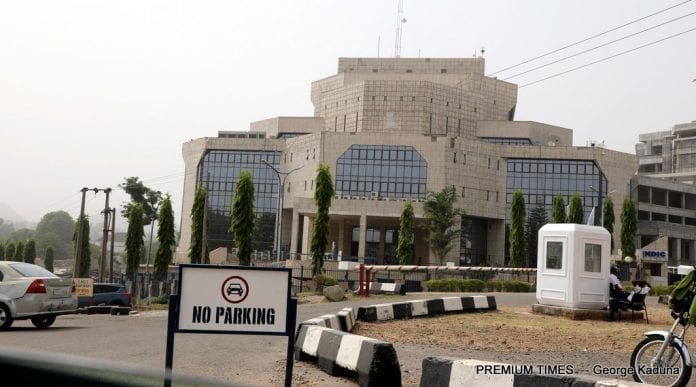The threat of recession, increased the national debt and non-performing loans in the country are pressurising regulators to reassess their supervisory activities.
The NDIC Managing Director, Alhaji Umaru Ibrahim, made this known at the 2020 workshop for Finance Correspondents Association of Nigeria (FICAN) in Lagos on Tuesday.
He emphasised that the rising public debt stock, as well as increase in non-performing loans (NPLs) in the banking industry, have put financial regulators under pressure to reassess their supervisory interventions to boost capabilities to respond and forestall a financial crisis.
Speaking in Lagos at the opening of the 2020 workshop for business editors and the Finance Correspondents Association of Nigeria (FICAN), Alhaji Umaru added that the threat of a pending economic recession and the potential for another financial crisis had further put regulators on their toes.
The NDIC boss noted that though the emergence of digital financial services enabled by financial technology (Fintech) had enhanced efficiency in the financial sector, it has also posed new challenges to financial regulators and consumers.
“The threat of a recession; increased national debt, increase in non-performing loans and a potential financial crisis have put pressure on regulators to reassess their supervisory activities to strengthen their capabilities to address these challenges and forestall a financial crisis,” he said.
Ibrahim said the impact of the COVID-19 pandemic and the resultant disruptions to social and economic activities had had negative consequences on all lives and nations across the world.
According to him, the emerging challenges became more apparent during the pandemic when the lockdown protocols hindered physical access to financial services, thereby encouraging more Nigerians to rely on digital financial services.
He, however, pointed out that as disruptive as the COVID-19 had been to other sectors of the country, the pandemic did not catch the NDIC napping.
He explained that based on the Corporation’s robust and proactive enterprise risk management strategy, it had immediately swung into action by activating its crisis management action plan to prevent any negative impact on its operations and the financial institutions under supervision.
The MD said the goal was to ensure the safety and protection of all staff and stakeholders to maintain continuity of its operations towards protecting depositors’ funds and ensuring the stability of the banking sector.
He said in recognition of the heightened fears of depositors’ lack of access to their money due to the COVID-19 disruptions. The Corporation had embarked on a nationwide public awareness campaign through the production and broadcast of radio and television jingles in the three major languages and pidgin, to enlighten depositors on the continued safety and security of their funds in licensed financial institutions under its purview.
He said the issues presently confronting the country were monumental and unprecedented adding however that are not insurmountable.
The NDIC boss, therefore, emphasised on the critical role of the media as central in shaping public perception and promoting financial stability through the reportage of the Corporation’s role in depositor protection.
This is as the NDIC Director, Communications and Public Affairs Department, Mr. Bashir Nuhu said part of the reforms being canvassed by the Corporation through the amendment of its establishment Act, was to ensure a definite timeline for failure resolution, preferably 10 days to enable failed bank customers get their money within a short period of time.
Also, speaking on “Global Review of COVID-Related Financial Stability Issues, Policy Measures Taken and Assessment of their Effectiveness”, the NDIC Director of Research, Policy and International Relations – Mr. Sunday Oluyemi, further stressed the need for increased surveillance of banks adding that the possibility of heightened impaired credits (NPLs) portfolio of banks arising from potential economic slowdown would require increased surveillance of the banking system through scheduled bank examination and improved off-site analysis.
As a result, he said that the Corporation is reviewing the framework for financial and technical assistance in readiness for assisting banks that are faced with liquidity and solvency challenges during the pandemic and beyond.
Among other things, he said there’s heightened need for financial and technical assistance by banks, pointing out that the Corporation is likely to receive applications for financial aid from supervised entities due to liquidity challenges occasioned by the pandemic.
Olayemi further observed that though the condition of the banking industry is generally satisfactory, the impact of COVID-19 had also led to a decline in credit facilities despite an increase in deposits from March to June 2020.
He said the regulatory and supervisory authorities had introduced measures to tackle the impact of the pandemic on the banking system with incentives including interest rate reduction, moratorium, liquidity injection and regulatory forbearance on loan restructuring among others.
He called for closer monitoring of banks and increased campaign on the safety of banks’ deposits through sustained public awareness, saying building trust and confidence in the financial system remained key priorities of regulators/ supervisors.























